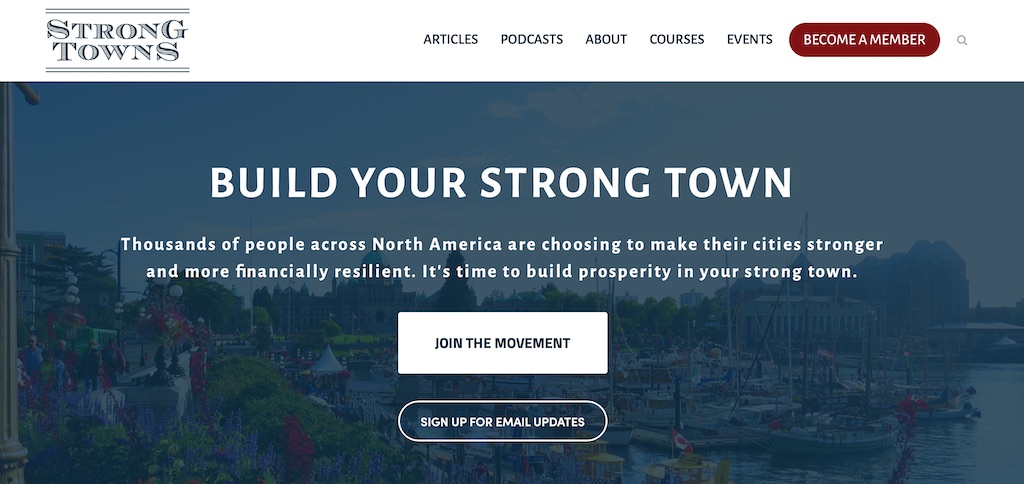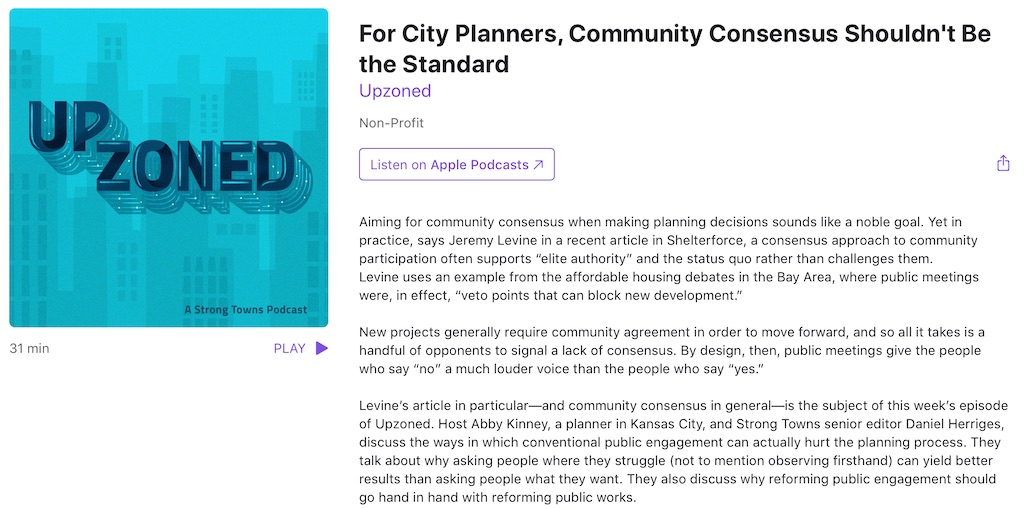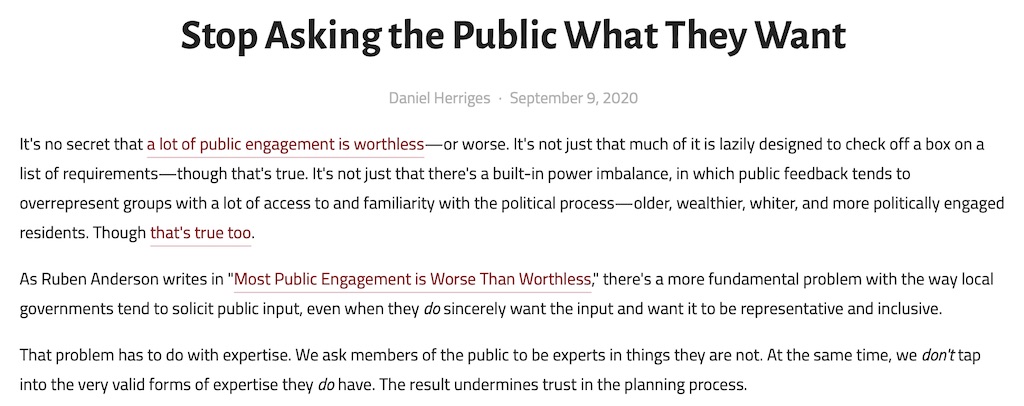Strong Towns is an international movement dedicated to making communities financially strong and resilient.

Strong Towns publish several podcasts, of which one is Upzoned. A recent episode of Upzoned discussed community engagement, the benefit (or not) of achieving consensus, and the value of trials.

The podcast discussion pointed out that it’s not always possible to achieve broad community consensus, nor is it necessarily desirable. Some cohorts of the community can use “the lack of consensus” as a blocking or veto mechanism for treatments that will benefit the majority. Even worse, the process of attempting to identify a consensus position pre-supposes that residents are engineering design experts, which isn’t the case. These concepts build on Strong Towns article with the provocative title of “Stop asking the public what they want“.

The article points out that people are experts in where it’s dangerous to walk or cycle, but not experts in the best way to deliver safety, e.g. the optimum width of a bicycle lane or vehicle lane.
Instead, we need to ask people what their values are and where they struggle. Based on these, experts can offer solutions for people to trial. The podcast pointed out that people usually rate “safety” as their top priority, but that this isn’t a design solution. We need community engagement to be a continuous process, using feedback from trials.
The pilot project is the engagement process
Daniel Herriges, Strong Towns senior editor
Our view
There’s a lot to unpack in these articles – we recommend reading the full set of references. We agree with the advice in the podcast, that pilots and trials are a best practice form of community engagement. We agree that trials are easier to understand, compared with engineering drawings. We agree that cities should invest a lot more in high-speed low-cost trials, combined with in-person or online surveys, such as what the City of Yarra have done with Elizabeth Street.
Published 30th September 2020.
